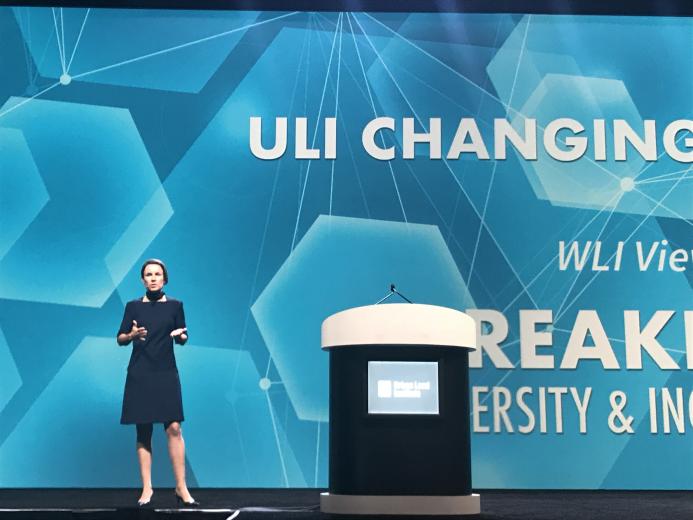1 6
Camille Renshaw, CEO and co-founder of B+E, a net lease brokerage firm, makes the business case for diversity and inclusion in real estate during a presentation of the topic at ULI's annual fall meeting. For Renshaw, having diverse employees makes good business sense; there's a void in the industry but having diversity of thought can bring in more dollars.
Conference attendees listen on as Andrew Bush, principal at Morgan Creek Ventures, details how his Boulder, Colo.-based development firm makes sustainability a focus in its real estate projects. Bush noted that sustainability is going to become the new normal over the next several years, and organizations will need to make it part of their DNA.
Tiffany Jana, CEO of TMI Consulting, Inc., says the real estate industry can play a role in making the world a more equitable place for all. Creating spaces for all—not just those with the most means—uplifts entire communities and benefits everyone, Jana said.
Boston’s Mayor Marty Walsh discusses how Boston is in the midst of a construction boom. There is $9.3 billion worth of projects under construction, and the city has approved $6.4 billion this year for construction in the pipeline—ahead of last year’s pace, Walsh said. Cities may get a lot of flak for not planning, but Walsh said Boston is working to change that; last year, the city adopted its first master plan in 50 years. “Together we designed the road map how to physically grow our city,” he said.
Julian Petrin, a partner at urbanista, a German urban development consultancy, discusses the importance of developers and governments teaming up with social actors and artists in cities to redevelop underused urban spaces—a trend popping up all over Europe.
Boston Mayor Marty Wash, Massachusetts’ Secretary of Housing and Economic Development Jay Ash and panel moderator Bryan Koop, executive Vice President at Boston Properties, pose for a selfie after discussing the partnerships between the state and city to improve housing and development.

